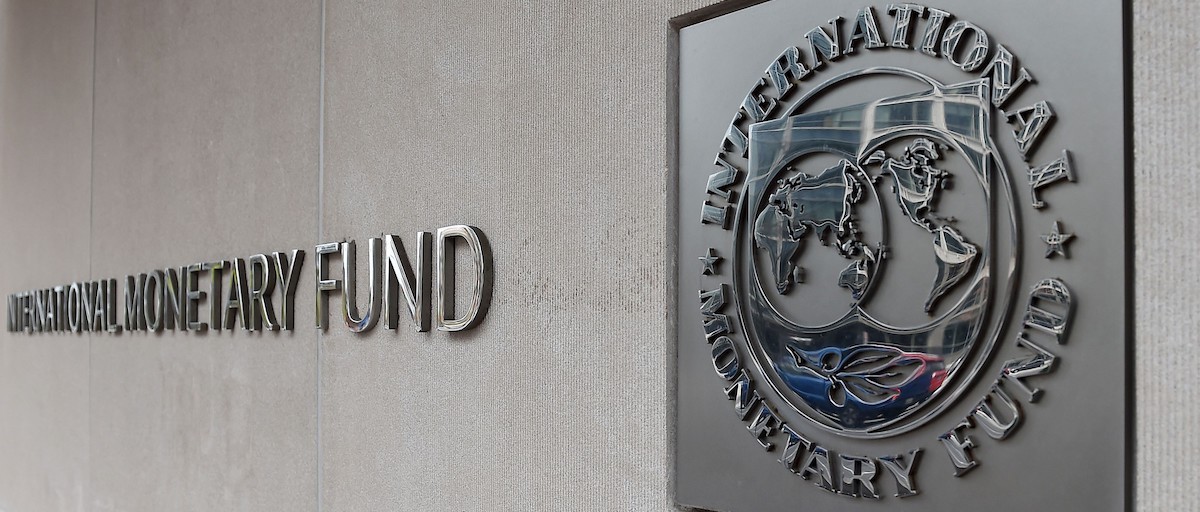IMF ready to work with Zimbabwe
International Monetary Fund (IMF) managing director Ms Kristalina Georgieva yesterday said they remain committed to working with Zimbabwe to ensure economic stability and the success of the re-engagement with the international community.
She said this in a post on X after participating in a discussion on Zimbabwe’s economic developments and update on the arrears clearance and debt resolution process in Washington DC ahead of the IMF-World Bank Spring Meetings that start today, ending Friday.
“Productive discussion at the Zimbabwe roundtable with donor partners,” she said.
“The IMF stands ready to work with the Zimbabwean authorities to restore macroeconomic stability and re-engage with the international community, which are essential for accessing external financing.”
The roundtable was attended by a number of top officials, including African Development Bank (AfDB) president Dr Akinwumi Adesina, who is also the champion of Zimbabwe’s Arrears Clearance and Debt Resolution process and former Mozambique President Joachim Chissano, who is the high-level facilitator of the process.
In his address, Finance, Economic Development and Investment Promotion Minister, Professor Mthuli Ncube said Zimbabwe’s total public and publicly guaranteed debt stock is estimated at US$21,1 billion, comprising external debt of US$13 billion and domestic debt of US$8,1 billion.
“Zimbabwe is currently in debt distress due to the accumulation of external debt payment arrears amounting to US$6,7 billion,” said Prof Ncube.
“The external debt overhang is weighing heavily on the country’s development needs due to lack of access to international financial resources to finance Zimbabwe’s economic recovery and priority projects and programmes, under the National Development Strategy 1: (2021-2025) (NDS1).”
In December 2022, Government established a Structured Dialogue Platform as part of it’s Arrears Clearance, Debt Relief and Resolution Strategy, with all creditors and development partners in order to institutionalise structured dialogue on economic and governance reforms to underpin the Arrears Clearance and Debt Resolution process.
Prof Ncube told delegates that since then, there has been commendable progress with the Structured Dialogue Platform, with growing consensus and confidence in the process, promoted by a transparent and inclusive consultative process.
Since December 2022, five Structured Dialogue Platform meetings were held in Harare, including a High-Level Debt Resolution Forum.
Prof Ncube said the meetings have been focusing on the following strategic three pillars; economic growth and stability reforms; governance reforms; and land tenure reforms, compensation of former farm owners and the resolution of Bilateral Investment Protection and Promotion Agreements (BIPPAs).
Prof Ncube said as a sign of commitment to the engagement and re-engagement process, Government was making quarterly token payments to International Financial Institutions.
The World Bank Group has received US$1 million, taking cumulative payments made to date to US$70 million.
The AfDB Group has received US$500 000, taking cumulative payments to date US$37,4 million, while the European Investment Bank has received US$100 000, taking the cumulative payments made so far to US$5,6 million.
“Government is also making quarterly token payments of US$100 000 to each of the 16 Paris Club bilateral creditors (cumulative token payments made to date are US$12,7 million,” said Prof Ncube.
Turning to the economy, he said Zimbabwe has successfully implemented an IMF Staff Monitored Programme, established a competitive foreign exchange rate regime, ended quasi-fiscal operations at the central bank, brought macroeconomic stability, tight monetary policy and sound fiscal management and ensured availability of social protection for all, among others.
Prof Ncube said negotiations were underway for a broad Staff Monitored Programme framework, adding that the programme is “critical for Government to establish a track record of policy implementation and pave the way for Arrears Clearance and Debt Resolution, including an IMF financial arrangement”.
In terms of the food situation, he said developments during the first three months suggest a difficult year ahead owing to a severe drought attributed to EI-Nino, with serious implications on the agriculture and energy sectors, as well as the rest of the economy.
Prof Ncube said Zimbabwe has already declared the drought a National Disaster and is seeking support of the international community, including from the World Bank and the AfDB, among others.-herald









